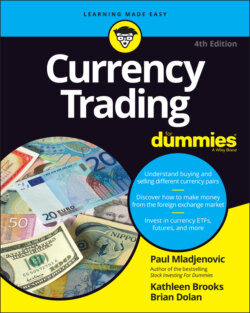Читать книгу Currency Trading For Dummies - Kathleen Brooks - Страница 54
Trading in the interbank market
ОглавлениеThe interbank market is an over-the-counter (OTC) market, which means that each trade is an agreement between the two counterparties to the trade. There are no exchanges or guarantors for the trades, just each bank’s balance sheet and the promise to make payment.
The bulk of spot trading in the interbank market is transacted through electronic matching services, such as EBS and Reuters Dealing. Electronic matching services allow traders to enter their bids and offers into the market, hit bids (sell at the market), and pay offers (buy at the market). Price spreads vary by currency pair and change throughout the day depending on market interest and volatility.
The matching systems have prescreened credit limits, and a bank will only see prices available to it from approved counterparties. Pricing is anonymous before a deal, meaning you can’t tell which bank is offering or bidding, but the counterparties’ names are made known immediately after a deal goes through.
The rest of interbank trading is done through currency brokers, referred to as voice brokers to differentiate them from the electronic ones. Traders can place bids and offers with these brokers the same as they do with the electronic matching services. Prior to the electronic matching services, voice brokers were the primary market intermediaries between the banks.
